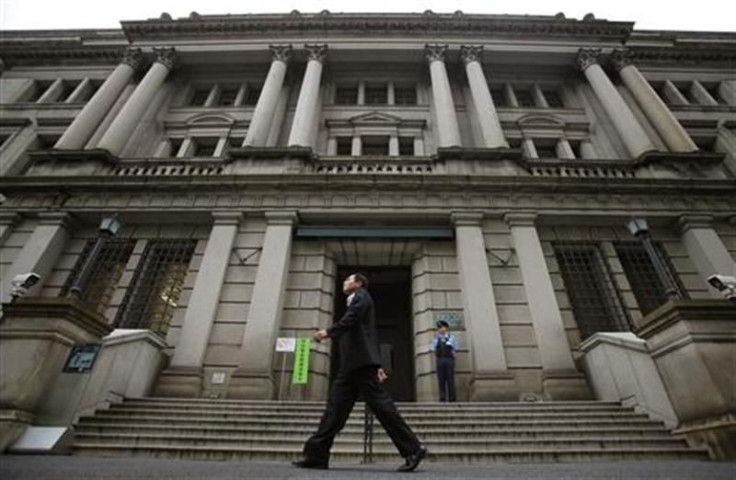Japan Considers Using Central Bank To Circumvent Iran Oil Payment Embargo

A day after the largest bank in Japan agreed to comply with a U.S. District Court order barring it from doing business with Iran, a move that precipitously cut off some 80 percent of all oil transactions between the two countries, bankers and government officials in Tokyo are reportedly trying to find a way to circumvent the commercial embargo.
One proposed solution involves using the Bank of Japan, the country's central bank, to handle cash-for-oil transactions, according to the Japanese business newspaper Nikkei.
Concerns are growing among Japan's leadership that oil imports to the energy-poor archipelago nation may be interrupted after the Bank of Tokyo-Mitsubishi UFJ (NYSE: MTU) froze some $2.6 billion it held in Tehran in response to a May 2 order from a U.S. federal court in New York.
On Thursday, Yukio Edano, Japan's minister of economy, trade and industry, conducted a press conference where he questioned the jurisdiction of a U.S. court in a matter related to a Japanese company and said, Our government will try to make a concerted effort and handle the issue appropriately, according to the Mainichi.
Various media reports have noted that, before floating the central bank idea, Japanese leaders discussed the possibility of funneling transactions to Iran through other Japanese banks. But those banks reportedly declined to take the place of Mitsubishi UFJ, fearing legal reprisals in the U.S. for doing so.
The Bank of Japan is widely considered a pioneer in adopting unorthodox policies in the face of crisis. It also is seen as more susceptible to political pressure than some of its international counterparts. But the idea of using a central bank to settle private-sector transactions is somewhat unprecedented in the developed world. The law governing the institution states it can only conduct business with other foreign central banks, although the finance minister can order exceptions.
It is unclear how the U.S. would react to such a move, which has the potential to set in motion a diplomatic and monetary-policy chess game involving the U.S., Japan, and Iran.
The U.S. District Court order, stemming from a 1983 case, is independent of the strategy of President Barack Obama's administration to use economic sanctions as a way of squeezing Iran enough so that it will abandon its ambitions to become a nuclear power.
In fact, after Japan cut its oil imports from Iran by 20 percent this year as a token of compromise, the U.S. State Department gave a waiver to the country that allowed it to continue purchasing petroleum from the Islamic Republic without facing U.S. financial sanctions.
But U.S. authorities still might dislike the idea of having a central bank used to circumvent an order from a federal court.
The Bank of Japan conducts a substantial amount of business with the U.S. Federal Reserve, and, on some occasions, has joined the Fed and other central banks in coordinated actions.
Tokyo is in a difficult position when it comes to restricting its dependence on Iranian oil: In the wake of the Fukushima Daiichi nuclear disaster in March of last year, the country has shut down all its nuclear power plants, which has sent its use of fossil fuels skyrocketing.
© Copyright IBTimes 2024. All rights reserved.




















